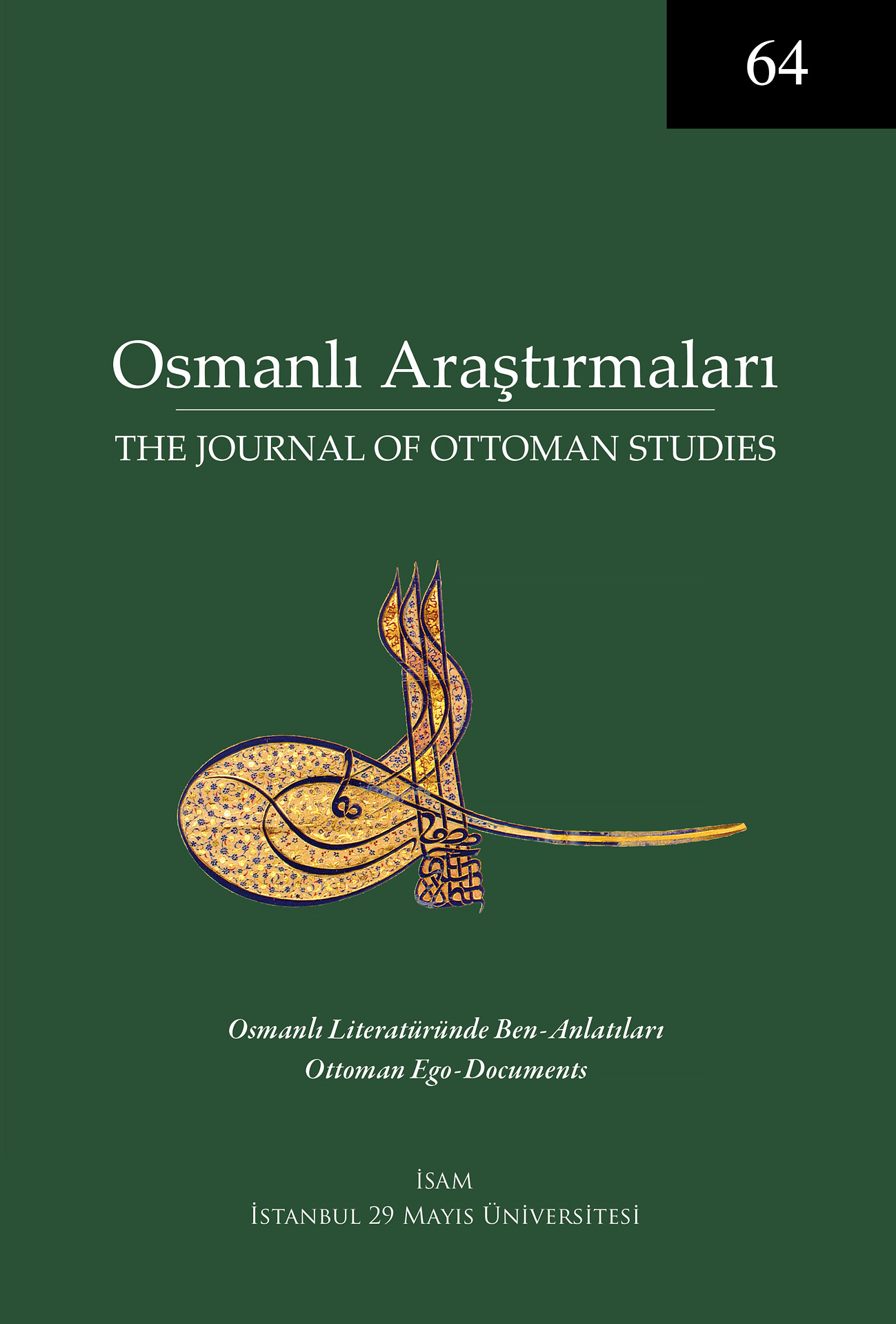Writing Oneself as Self-Building and the Self-Perception of an Ordinary Ottoman Clerk in the 18th Century
Keywords:
Autobiography, Ego-Document, Writing Oneself, Self-Building, Self-Perception, Yazıcı Murtaza, Ottoman EmpireAbstract
As social beings, humans emerge within communities. Their language, beliefs, emotions, thoughts, and understanding of the world are shaped by communication and interaction with the social entities to which they belong. The intellectual capacities of an individual also develop through such interactions. Therefore, each unique individual perceives, interprets, and represents both themselves and their environment within the sphere of language and cognition that encompasses them. Constructing one’s identity through writing is also a form of this collectivity. Thus, it is necessary to understand why and how someone writes about themselves, as well as the language and style they use, in order to accurately assess both the writer and the written. The Ottomans were no exception to this phenomenon. Narrative held a collective significance occurring within a cultural and societal framework. Each individual keeping personal records constructed themselves within a linguistic realm consisting of values, myths, metaphors, symbols, and expressions. The nature of collectivity does not imply that self-expression is impossible however. Yazıcı Murtaza, a scribe, was an ordinary Ottoman who documented his own narrative in the 18th century. In his account, he shed light on his family, revealed his expectations, disappointments, sorrows, and joys, and aimed to communicate the world he perceived. Within the outlined theoretical framework, this study will discuss the act of self-writing by Yazıcı Murtaza and examine his self-perception through his travel notes and poems.




